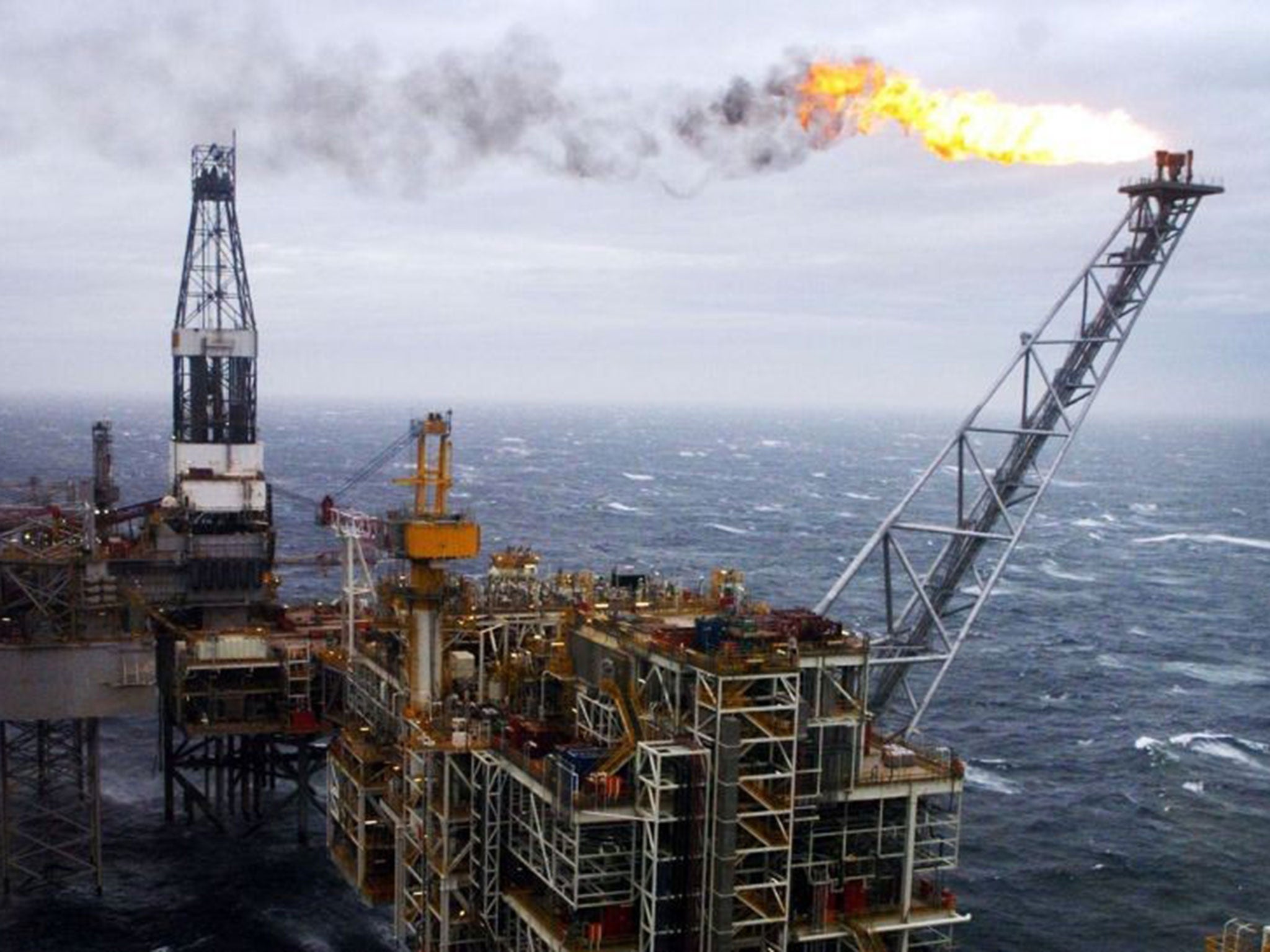The Scottish people deserve the truth about North Sea oil and gas
The first step towards managing oil wealth well is transparency over what it is worth

Your support helps us to tell the story
From reproductive rights to climate change to Big Tech, The Independent is on the ground when the story is developing. Whether it's investigating the financials of Elon Musk's pro-Trump PAC or producing our latest documentary, 'The A Word', which shines a light on the American women fighting for reproductive rights, we know how important it is to parse out the facts from the messaging.
At such a critical moment in US history, we need reporters on the ground. Your donation allows us to keep sending journalists to speak to both sides of the story.
The Independent is trusted by Americans across the entire political spectrum. And unlike many other quality news outlets, we choose not to lock Americans out of our reporting and analysis with paywalls. We believe quality journalism should be available to everyone, paid for by those who can afford it.
Your support makes all the difference.Oil is one of many hotly contested topics in the Scottish referendum conversation, and it would be a mainstay of an independent Scotland’s future. Nobody really knows how much there is or what the best way to manage it would be, but that hasn’t stopped both sides from trying squeeze as much political capital out of the issue as possible. That much we know from the leaders’ debates.
Better Together’s Alistair Darling described the Office of Budget Responsibility’s estimate of 10bn barrels of remaining North Sea oil as “too optimistic”, noting this would account for 15 per cent of an independent Scotland’s revenue. Alex Salmond then shot back quoting up to 18.5 billion barrels valued at a transformational £1 tn. He went on to describe the No Campaign, Labour and Tories as, “the only people in the world who argue that possession of substantial amounts of oil and gas is somehow a curse.”
He should try telling that to the people of Angola, Nigeria or the Democratic Republic of Congo. As a former oil economist, Mr Salmond should know that the relationship between the black gold and economic development all too often a story of ruinous exchange rates, corruption and conflict. If they are not well managed, natural resources can certainly be a curse for all but a powerful few.
The first step towards managing oil wealth well is transparency over what it is worth. In Scotland, two very different estimates are plausible and citizens don’t know who to believe in a deeply politicized debate.
There is a simple way to fix this. Publishing good data on revenues and operations would allow civil society groups to independently verify the claims being made, cutting through the political bluster and putting the public in view of the facts over an issue that will be critical to Scotland’s future, independent or otherwise.
Initially, this means full disclosure of current oil revenues. Whichever side wins on Thursday must honour the UK government's commitments to swift implementation of the Accounting and Transparency Directives, EU-wide laws which will require oil, gas, mining and logging companies to publish what they pay to governments for natural resources. They must also join the Extractive Industries Transparency Initiative, the international scheme which requires both companies and governments to disclose detailed information on natural resource taxation receipts.
For future revenue, detailed data on production, reserves, costs and profitability must be publicly available. The more specific this data, the better. If the Yes campaign prevails and resources are to be carved up in an equitable settlement, this will need data on individual projects.
Finally, this means greater honesty. An unparalleled scientific consensus says that to stand a reasonable chance of avoiding catastrophic rises in global temperatures, most of the world's known fossil fuel reserves have to stay in the ground. It was not mentioned in the leaders’ debate. The economic forecasts outlined in the leaders’ debates assume extraction of every drop of fuel when it's abundantly clear we won't have that luxury.
There are few better arguments for transparency over the oil revenues than the political drama playing out in the UK this week. Whichever government controls North Sea oil and gas after Thursday will have to perform a delicate balancing act, managing the final years of a finite resource. The politicking and hyperbole the campaigns have given us so far do not serve their public well.
Join our commenting forum
Join thought-provoking conversations, follow other Independent readers and see their replies
Comments